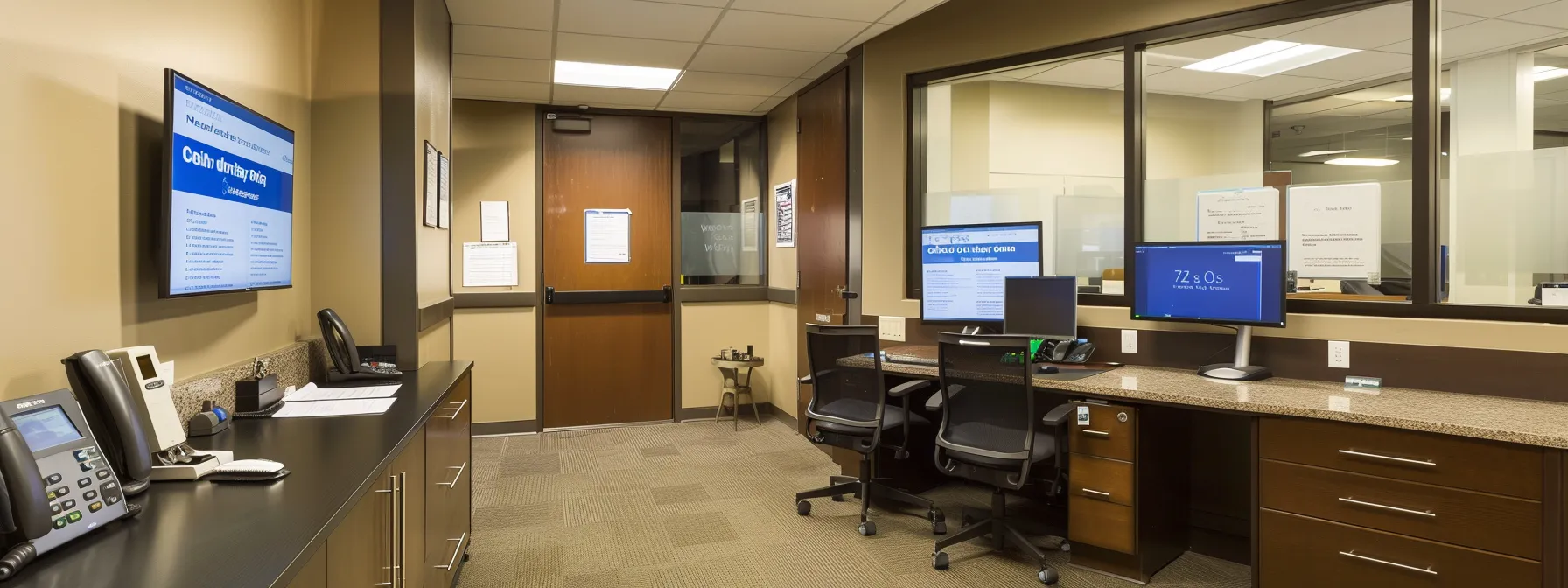Key Factors to Evaluate When Selecting the Right Medical Billing Service for Your Practice
Selecting a medical billing service can be overwhelming for many practice owners. With numerous options available, understanding what truly matters is key to maximizing revenue and minimizing administrative burdens. This article will outline essential factors to consider, including service scope, pricing structures, and electronic health record capabilities. By delving into these areas, readers will gain insights to navigate the selection process effectively and ensure their practice benefits from a reliable partner in revenue cycle management. This guidance addresses common pain points, helping practices streamline operations and improve financial performance.
- Assess the expertise of billing services in specialty billing and claim submission accuracy
- Review denial management strategies to enhance revenue recovery and cash flow
- Evaluate the integration of billing services with existing EHR systems for seamless operations
- Understand pricing structures and total costs to avoid unexpected expenses
- Confirm compliance with HIPAA regulations to protect patient data and build trust
Assess the Scope and Quality of Services Offered
Assessing the scope and quality of services offered by a medical billing service is essential for ensuring effective revenue cycle management. Practices should determine their specific needs and evaluate the provider’s expertise in specialty billing, claim submission accuracy, and coding proficiency. Additionally, reviewing their approaches to denial management and the availability of patient billing support can provide insights into transparency and data security, which are crucial for optimizing collections and managing deductibles. medical billing company
Determine Full Revenue Cycle Management Needs for Your Practice
Identifying the full revenue cycle management needs of a medical practice involves assessing both clinical and administrative functions. Practices must consider the intricacies of specialty billing, such as those associated with international classification of diseases (ICD) and the specific requirements outlined by the health care provider (HIPAA). This enables providers to understand their needs better and ensures that medical billing companies can meet compliance standards while enhancing reimbursement stability.
Evaluating the current billing processes, especially in urgent or emergency situations, is also vital. Practices should review their existing workflows for accuracy in claim submissions and the management of denials. Ensuring that medical billing companies have solid procedures in place for tracking claims and addressing issues will help optimize accounts receivable and minimize revenue loss, ultimately leading to sustained financial health for the health care practice.
Evaluate Expertise in Your Medical Specialty Billing
When evaluating expertise in medical specialty billing, practices should prioritize providers with a deep understanding of specific diseases and treatment protocols relevant to their field. A billing service that comprehensively understands the nuances of billing for various conditions can significantly impact reimbursement accuracy. Additionally, examining how a potential partner integrates their workflow with electronic health record (EHR) systems will ensure seamless information transfer, enhancing efficiency and minimizing errors during claims submissions.
Moreover, practices must consider the provider’s approach to insurance verification as a critical component of their billing process. Effective verification ensures that patient eligibility is confirmed ahead of time, reducing the risk of denied claims and subsequent revenue loss. By assessing the price structures and transparency in services offered, practices can choose a billing service that not only aligns with their financial goals but also optimizes cash flow through improved claims management and proactive denial resolution.
Check Proficiency With Claim Submission and Coding Accuracy
Proficiency in claim submission and coding accuracy is crucial when selecting a medical billing service. An expert provider should demonstrate a strong understanding of billing and coding standards set by organizations like AAPC, ensuring adherence to best practices for accurate claims processing. This includes having a robust system in place for regular audits and updates to maintain compliance with evolving regulations, which can minimize errors and enhance revenue flow.
Medical practices must also evaluate the provider’s process for handling rejected claims. An established billing service should have a clear strategy for resubmitting claims and addressing coding discrepancies. This proactive approach mitigates financial loss and strengthens overall accounts receivable within the practice:
- Assess the expertise in billing and coding for specialized medical fields.
- Evaluate the adherence to AAPC standards to ensure compliance.
- Review the procedures for claim submissions and potential rejections.
- Consider the effectiveness of their coding accuracy to maximize reimbursements.
Review Approaches to Denial Management and Appeals
Effective denial management and appeals processes are essential components of robust revenue cycle management. Medical billing services should have well-defined procedures that include timely follow-ups on denied claims, thorough analysis to identify patterns, and proactive communication with payers. The ability to quickly address denials can significantly enhance cash flow for physicians, particularly in specialized fields like radiology billing services, where claim complexity is higher electronic health record.
When evaluating potential billing partners, practices should inquire about their denial management strategies and success rates. A reliable service will provide insights into their processes for appealing denials and how they utilize technology and personnel resources, such as telephone support, to manage these situations efficiently. Strong expertise in accounts receivable management ensures that a practice can recover lost revenue and minimize employment disruptions caused by cash flow challenges.
- Inquire about denial management and appeals processes.
- Assess the effectiveness of timely follow-ups on denied claims.
- Explore communication methods with payers, including telephone support.
- Evaluate success rates in recovering denied claims for specific specialties.
Assess Availability of Patient Billing and Inquiry Support
When considering a medical billing service, assessing the availability of patient billing and inquiry support is essential for maintaining excellent health care relationships. Practices should look for providers that offer dedicated support teams to address billing questions and concerns, ensuring that patients receive timely attention and clarity regarding their accounts. Services that include features like medical transcription support enhance communication and minimize misunderstanding, fostering trust between the practice and its patients.
Furthermore, providers that utilize a flat rate billing model can simplify the financial management process for practices. This pricing structure can alleviate concerns about fluctuating costs while providing transparency in the services offered. ascendant medical prioritizes accessible patient support, allowing practices to focus on delivering quality care while ensuring that billing issues do not disrupt patient satisfaction. Understanding these factors contributes significantly to selecting an optimal health care provider partner.
- Evaluate the responsiveness of patient support teams.
- Look for added features like medical transcription support.
- Consider the transparency of billing costs through flat rate structures.
- Assess how the service promotes patient satisfaction and trust.
Scrutinize Pricing Structures and Total Cost of Ownership
When evaluating a billing company, it is crucial to scrutinize pricing structures and understand the total cost of ownership. Practices should compare percentage-based versus flat-fee models, identify all potential setup fees and hidden charges, and consider costs associated with medical billing or clearinghouses. Additionally, calculating the projected return on investment, along with clarifying payment terms and billing cycles, ensures practices make informed decisions while prioritizing confidentiality and customer support.
Compare Percentage-Based Versus Flat-Fee Models
When comparing percentage-based and flat-fee models in billing services, practices must consider how each structure affects their overall financial health. Percentage-based models charge a fee as a percentage of collected revenue, which can be advantageous during periods of high patient volume, as costs will vary with income. However, this model can lead to unpredictability in expenses, making it essential for practices to assess their revenue trends and estimate potential costs against the services provided by medical billing services.
On the other hand, flat-fee models offer stability, charging a predetermined amount regardless of collections. This pricing structure helps practices budget more effectively and reduces concerns about fluctuating costs linked to revenue cycles. In addition, when utilizing flat-fee billing, practices can ensure that the billing services prioritize efficiency and patient safety, knowing that their costs remain constant. Understanding these differences allows practices to choose a billing service that aligns with their financial goals while benefiting from the skill and expertise necessary for effective medical billing company services.
Identify All Potential Setup Fees and Hidden Charges
When selecting a medical billing company, it is vital for practices to identify all potential setup fees and hidden charges detailed in the contract. Understanding these fees can help avoid unforeseen expenses that may impact the overall budget and revenue management. For instance, credentialing fees associated with establishing provider accounts can vary significantly, and practices should be aware of how these costs fit into the larger financial picture.
Moreover, healthcare providers should consider the implications of audit fees that may arise during the billing process. Some billing services may charge for audits conducted to ensure compliance with the Healthcare Common Procedure Coding System (HCPCS) and other regulatory standards. Practices must carefully evaluate these aspects to select a billing service that not only aligns with their financial goals but also maintains transparency regarding all medical billing obligations and accounts receivable.
Understand Costs Associated With Software or Clearinghouses
Understanding costs associated with software or clearinghouses is critical when selecting a billing partner. Many medical billing services utilize specific software that incurs a recurring fee, impacting the overall budget for outsourcing medical billing. Practices should investigate whether these costs are included in the service agreement or if additional fees will apply, ensuring they grasp the complete financial implications of engaging a billing provider.
Furthermore, practices must assess the efficiency of the software used by their potential billing partner. If the software offers robust features for handling medical billing and claims processing, it can lead to improved revenue cycle management. Evaluating the capabilities of such technology helps practices anticipate potential costs while ensuring they choose a billing solution that aligns with their operational needs and electronic health record.
Calculate the Projected Return on Investment
Calculating the projected return on investment (ROI) for a medical billing service is a critical step for health care providers seeking to reduce overhead and alleviate stress associated with financial management. An effective approach involves assessing how improvements in billing efficiency and accuracy can lead to increased collections and reduced claim rejections. For instance, if a practice experiences a 10% improvement in revenue due to streamlined processes, this quantifiable gain contributes significantly to the overall financial well-being of the practice. Outsourcing accounts receivable
Furthermore, factors such as compliance with the Affordable Care Act and ongoing adherence to regulatory updates should be closely monitored in the ROI calculation. Understanding the impact of these regulations can prevent costly penalties and enhance financial stability. Providers need to consider how much time their staff spends on billing issues versus patient care, as evidence shows that effective medical billing companies can free up accounts receivable. Practicing due diligence in these areas, including having a dedicated telephone number for patient inquiries, can ultimately enhance the patient experience while contributing to the practice’s financial success.
Clarify Payment Terms and Billing Cycles
Clarifying payment terms and billing cycles is essential for practices that are considering outsourcing medical billing services. Understanding the frequency of payments, whether monthly or based on collections, helps practices manage their cash flow effectively. Additionally, practices should inquire about how health insurance reimbursement timelines align with these payment schedules to avoid potential discrepancies affecting revenue streams.
Practices should also explore how the billing service integrates with existing accounting software to manage profit and wage calculations smoothly. This integration can ensure efficiency in monitoring revenue and safeguarding protected health information throughout the billing process. Establishing clear payment terms and having a transparent billing cycle contribute significantly to optimizing the financial health of a medical billing practice. In addition, the health care provider must adhere to compliance with regulations such as the health insurance portability and accountability act.
- Clarify payment terms and their impact on cash flow.
- Explore billing cycles in relation to health insurance reimbursement timelines.
- Understand how the billing service integrates with accounting software.
- Ensure security of protected health information during financial transactions.
Verify Technological Capabilities and System Integration
Establishing the technological capabilities and system integration of a medical billing service is vital. Practices should confirm compatibility with their current electronic health record or practice management system and assess the user-friendliness of the billing platform. Reviewing reporting features and data analytics access, understanding the processes for software updates and maintenance, and checking options for secure data exchange will ensure a seamless workflow while optimizing revenue cycles.
Confirm Compatibility With Your Current EHR or PM System
Confirming the compatibility of a medical billing service with a practice’s existing electronic health record (EHR) or practice management (PM) system is crucial for seamless operations. Practices should assess whether the billing platform can integrate smoothly with their current technological infrastructure, as this compatibility minimizes disruptions and enhances data accuracy. A well-integrated system allows for efficient data transfer, reducing the potential for errors and streamlining the billing process, which ultimately supports revenue optimization.
Moreover, the chosen billing service should offer robust technical support and training for staff to navigate any challenges during integration. By prioritizing compatibility, practices can ensure that their billing solutions adapt to their workflow, enhancing productivity and maintaining focus on patient care. This attention to technological alignment not only fosters positive patient experiences but also strengthens the overall financial performance of the practice.
Assess the User-Friendliness of Their Billing Platform
Assessing the user-friendliness of a billing platform is essential for practices seeking efficient medical billing services. A user-friendly interface allows staff to navigate the software with ease, reducing training time and enhancing overall productivity. Practices should look for platforms that provide intuitive features and straightforward processes, enabling quick access to vital billing information and functionalities.
An effective billing platform will also offer responsive customer support to assist staff with any issues that may arise. This capability is crucial in minimizing disruptions and maintaining a smooth workflow. By ensuring that the chosen service emphasizes usability, practices can better manage their accounts receivable, ultimately improving financial performance and enhancing patient care.
Review Reporting Features and Data Analytics Access
When selecting a medical billing service, practices must prioritize the availability of robust reporting features and data analytics access. Comprehensive reporting tools can provide valuable insights into financial performance, enabling practices to monitor key metrics such as claims submission rates, denial trends, and revenue cycle efficiency. Access to real-time data allows healthcare providers to make informed decisions and quickly address issues that may affect cash flow, ultimately enhancing overall operational effectiveness.
Furthermore, practices should examine how the billing service utilizes data analytics to identify revenue opportunities and streamline the billing process. A partner that leverages analytics effectively can help practices identify patterns in patient payer behavior and optimize claims submissions. This capability not only facilitates proactive management of potential denials but also supports sustained financial growth by ensuring timely and accurate reimbursements that better reflect the practice’s services. Moreover, a billing company that specializes in this area can further enhance the efficiency of financial operations.
Understand Their Process for Software Updates and Maintenance
Understanding the process for software updates and maintenance is crucial when selecting a medical billing service. Practices should inquire about how frequently the billing provider updates its software and the mechanisms in place for these updates. A responsive billing service should ensure that their software remains compliant with current regulations and industry standards, minimizing potential disruptions to billing operations and protected health information.
Moreover, practices must assess the level of technical support offered during software updates. Reliable billing services will provide training and assistance to help staff navigate any changes introduced through updates. This proactive approach not only maintains workflow consistency but also enhances operational efficiency, allowing practices to focus on patient care while ensuring their electronic health record operate effectively:
- Assess the frequency of software updates for compliance and efficiency.
- Inquire about technical support provided during updates.
- Evaluate how updates impact current billing workflows and staff training.
Check Options for Secure Data Exchange and Access
Ensuring secure data exchange and access is vital for any medical practice considering a billing service. Proper encryption methods and secure protocols are essential to protect patient information during transmission between systems. Medical billing providers should demonstrate compliance with health insurance portability and accountability act regulations, which safeguard sensitive healthcare data, allowing practices to maintain trust with their patients while optimizing their revenue cycles.
Furthermore, evaluating the options for secure data exchange can significantly enhance operational efficiency. A reliable billing service will employ user-friendly platforms that facilitate seamless integration with existing electronic health record or practice management systems, minimizing disruptions. This capability enables practices to manage critical information securely, streamlining workflows and improving overall patient care while safeguarding protected health information from potential breaches.
Confirm Compliance Standards and Data Security Protocols
Practices must confirm strict adherence to HIPAA regulations when selecting a medical billing service. Inquiring about data encryption methods both in transit and at rest is essential to safeguard patient information. Understanding procedures for data breach responses, staff training on privacy and security rules, and auditing practices will further ensure compliance and enhance the overall security posture of the billing company. health insurance portability and accountability act
Validate Strict Adherence to HIPAA Regulations
Validating strict adherence to health insurance portability and accountability act regulations is essential for any medical practice selecting a billing service. A provider must implement robust data encryption methods both during transmission and at rest to protect sensitive patient information. By confirming that a billing service maintains comprehensive policies for safeguarding protected health information, practices can mitigate risks and ensure compliance with legal standards.
Moreover, practices should inquire about the billing service’s procedures for handling protected health information breaches and the training provided to staff regarding privacy and security protocols. A trustworthy health care provider will commit to regular auditing and monitoring practices to ensure ongoing compliance. This diligence not only enhances data security but also builds trust with patients, ultimately supporting the practice’s reputation and financial health.
Inquire About Data Encryption Methods in Transit and at Rest
Inquiring about data encryption methods used by a medical billing service is vital for safeguarding sensitive patient information. Providers should ensure that robust encryption protocols are applied both during data transmission and when data is at rest. This ensures that personal health information remains secure from potential breaches, protecting practices from legal liabilities and maintaining patient trust.
Healthcare practices must emphasize the importance of compliance with health insurance portability and accountability act regulations, which mandate rigorous data protection measures. Understanding the specific encryption technologies utilized by billing services can provide insights into their commitment to security. This diligence enables practices to select a billing partner that prioritizes the protection of patient data and contributes to better overall financial management and operational integrity, accounts receivable.
Understand Procedures for Data Breach Response
Understanding the procedures for data breach response is critical when selecting a medical billing service. A robust response plan outlines how the service will detect, report, and mitigate any security incidents involving patient information. Practices should ensure that the billing provider conducts regular training for their staff on privacy protocols and response procedures, which helps minimize risks associated with data breaches and health care.
Additionally, it is vital to evaluate the communication strategy the billing service employs during a breach. Timely notifications and clear guidelines benefit medical practices, enabling them to act swiftly to protect patient data and manage regulatory requirements effectively. A medical billing service that prioritizes transparency and accountability will not only enhance data security but also foster trust between the health care provider and the healthcare common procedure coding system .
Check Staff Training on Privacy and Security Rules
When selecting a medical billing service, it is vital to evaluate the training provided to staff on privacy and security rules. A competent billing provider will ensure that all personnel undergo regular training to stay updated on health insurance portability and accountability act regulations and data protection requirements. This commitment not only helps minimize risks associated with data breaches but also fosters a culture of patient safety within the organization, enhancing patient trust and confidence in the billing process.
Furthermore, effective training programs should include practical scenarios and guidelines for staff to follow in the event of a potential data breach. This preparedness allows billing teams to act swiftly and appropriately to protect sensitive information. By confirming the thoroughness of these training protocols, practices can select a billing partner that prioritizes compliance and data security, ultimately contributing to a secure environment for patient information and fostering a reliable operational relationship. This includes understanding the requirements of the health care.
Request Information on Auditing and Monitoring Practices
Requesting information on auditing and monitoring practices is essential when choosing a medical billing service. A reputable provider should conduct regular audits to maintain compliance with healthcare regulations and assess data security protocols. These audits help identify potential vulnerabilities, ensuring that patient information remains protected while optimizing the overall reimbursement cycle management, electronic health record.
Moreover, practices should inquire about the frequency of these audits and the qualifications of the auditors. Understanding how the billing service monitors its operations can provide insights into its commitment to data security and regulatory compliance. A transparent approach in auditing practices not only enhances trust but also supports the practice’s financial health through adherence to best practices and accountability. Moreover, practices should ensure that they stay updated with the latest regulations, such as the health insurance portability and accountability act, to safeguard patient information.
Investigate Company Reputation and Client Support Record
Practices should thoroughly investigate the reputation and client support record of potential medical billing services. Seeking out testimonials and case studies from similar practices can reveal valuable insights into their effectiveness. Requesting client references for direct contact will help assess the provider’s reliability. Evaluating the average client retention rate indicates satisfaction levels, while responsiveness and availability of customer service are crucial for timely support. Checking online reviews and overall industry standing further contributes to a comprehensive understanding of the medical billing company’s reliability and effectiveness.
Seek Out Testimonials and Case Studies From Similar Practices
Seeking testimonials and case studies from similar practices is an effective strategy for assessing the credibility of a medical billing service. These firsthand accounts provide insights into the provider’s strengths and weaknesses, offering potential clients a clearer understanding of how the service can meet their specific needs. When potential partners present success stories from practices in the same medical specialty, it reinforces their expertise and can enhance confidence in their ability to deliver optimal patient safety management solutions.
Investigating the experiences of other healthcare providers not only highlights the service’s efficiency but also indicates its customer support capabilities. By analyzing case studies that detail how billing issues were addressed and resolved, practices can gauge how responsive the medical billing company is during critical situations. This understanding can streamline the decision-making process, allowing medical practices to select a billing partner that aligns with their operational goals and enhances overall financial performance.
Request Client References You Can Contact Directly
Requesting client references that can be contacted directly is an important step in selecting the right medical billing service. Speaking to existing clients offers practices valuable insights into the billing provider’s reliability, responsiveness, and overall service quality. This firsthand feedback helps practices assess how well potential partners manage accounts receivable and handle challenges, ensuring alignment with their operational needs.
Additionally, engaging with previous clients can reveal information about specific experiences, such as how effectively the billing service responded to claims denials or managed patient inquiries. Such discussions can highlight potential strengths or areas for improvement that may not be evident in marketing materials. By prioritizing direct client references, practices can make a more informed decision and enhance their chances of selecting a billing partner that effectively supports their financial goals in medical billing
Evaluate Their Average Client Retention Rate
Evaluating the average client retention rate of a medical billing service can provide significant insights into its reliability and overall service quality. A high retention rate typically indicates that clients are satisfied with the support and results they receive, which is essential for practices looking to improve their revenue cycle management. Physicians should feel confident that their billing partner demonstrates consistent performance, as maintaining long-term relationships with clients often reflects effective communication and successful outcomes in financial processing.
Furthermore, understanding client retention can help practices identify potential red flags in a billing service’s operations. If a provider shows low retention rates, it may signal issues such as subpar customer support or inefficiencies in billing practices, which could ultimately impact a practice’s revenue. By focusing on partners with strong client retention, medical practices can mitigate risks and choose a billing service that is more likely to deliver transparent, compliant, and effective medical billing services.
If a provider shows low retention rates, it may signal issues such as subpar customer support or inefficiencies in billing practices, which could ultimately impact a practice’s revenue. By focusing on partners with strong client retention, medical practices can mitigate risks and choose a billing service that is more likely to deliver transparent, compliant, and effective medical billing services. Additionally, the health care provider can assist in leveraging technology for improved patient interactions and support.
Assess the Responsiveness and Availability of Customer Service
Evaluating the responsiveness and availability of customer service is crucial when choosing a medical billing service. A reliable provider should have dedicated support teams readily accessible to address queries and concerns about billing processes. This ensures that practices can maintain smooth operations and swiftly resolve issues, which ultimately contributes to improved patient satisfaction and financial performance.
Moreover, practices should assess how quickly and effectively potential billing partners respond to inquiries. An efficient medical billing service will offer multiple communication channels, such as phone support, email, and live chat, to facilitate prompt interactions. Understanding the responsiveness of customer service teams helps practices gauge how well they can rely on the billing service for assistance during critical situations: medical billing companies
- Availability of support teams to handle billing inquiries.
- Response time for client inquiries across various channels.
- Communication methods provided for efficient interactions.
Check Online Reviews and Industry Standing
Checking online reviews and understanding the industry standing of a medical billing service is essential for evaluating its credibility and reliability. Online platforms, such as Google Reviews and industry-specific forums, often provide insights from current and former clients regarding their experiences. Practices that take the time to analyze these reviews can identify patterns related to service quality, responsiveness, and overall client satisfaction, which are crucial factors in selecting a dependable billing partner.
In addition to online reviews, assessing a billing service’s reputation within the healthcare industry can provide valuable context about its expertise and performance. Industry certifications, awards, and partnerships with reputable associations can indicate a company’s commitment to maintaining high standards in revenue cycle management. By scrutinizing these factors, practices can feel more confident in their choice and ensure that their billing service has a proven track record of success: medical billing companies accounts receivable
- Look for client testimonials showcasing service quality.
- Review industry awards and certifications for trustworthiness.
- Evaluate responses to client feedback and complaints.
- Consider the overall standing within the healthcare billing community.
Understand Contract Terms and Performance Guarantees
When evaluating a medical billing service, understanding contract terms and performance guarantees is essential. Practices should review the contract length and termination clauses, identify key performance indicators, and clarify service level agreements. Additionally, comprehending the onboarding process and scalability options ensures that the chosen medical billing company aligns with the practice’s growth and operational needs.
Review the Contract Length and Termination Clauses Carefully
Carefully reviewing the contract length and termination clauses of a medical billing service is crucial for practices aiming to establish a stable partnership. Understanding the duration of the agreement can help practices anticipate potential commitments, while clear termination clauses ensure that they have the necessary flexibility to switch providers if expectations are not met. This attention to detail can prevent unplanned financial liabilities that may arise from a long-term contract with a medical billing company, such as overhead.
Moreover, it is advisable for practices to seek contracts with performance guarantees that outline expected service levels and provide benchmarks for success. Such guarantees can offer peace of mind, as they hold the billing provider accountable for meeting specific outcomes that directly influence revenue cycle performance. By focusing on these essential contract elements, practices can make informed decisions that safeguard their financial interests and enhance overall operational efficiency:
- Review contract duration to understand long-term commitments.
- Examine termination clauses for flexibility in switching providers.
- Look for performance guarantees outlining expected service levels.
- Make informed decisions to protect financial interests.
Identify Key Performance Indicators Tracked by the Service
Identifying key performance indicators (KPIs) tracked by a medical billing service is crucial for ensuring that practices can effectively evaluate their performance against defined benchmarks. Common KPIs include claim submission rates, denial rates, and days in accounts receivable. Monitoring these metrics allows practices to uncover inefficiencies and assess whether the billing service meets the expected standards for revenue cycle management and patient safety.
Furthermore, understanding how the billing service reports on these KPIs will aid practices in making informed decisions regarding their provider choice. Regular reporting on these indicators not only facilitates quick adjustments to strategies but also builds a transparent partnership that aligns with the practice’s financial goals. By focusing on these specific KPIs, practices can maximize their revenue potential and strengthen their overall financial health: health care provider accounts receivable
Clarify Service Level Agreements and Performance Expectations
Clarifying service level agreements (SLAs) is essential for medical practices evaluating potential billing partners. SLAs outline the expected performance metrics and help establish accountability. By defining specific benchmarks, such as claim processing times and denial management success rates, practices can ensure that their billing service aligns with their operational goals and addresses their medical billing needs effectively.
Establishing clear performance expectations not only fosters transparency between the practice and the billing provider but also facilitates continuous improvement. For instance, a billing service that commits to regular performance reviews can proactively identify areas for enhancement, allowing the practice to adjust strategies as needed. This proactive approach leads to better financial outcomes and an optimized medical billing process, ultimately benefiting both the practice and its patients.
Understand the Onboarding Process and Transition Support
Understanding the onboarding process is vital when selecting a medical billing service as it lays the groundwork for a successful partnership. Practices should inquire about how the billing provider facilitates the transition, including training for staff and the timeline for integrating systems. A smooth onboarding process minimizes disruptions and ensures that financial operations continue effectively while new medical billing companies are being implemented.
Transition support from the billing service should enhance the efficiency of the overall integration. Providers must offer ongoing assistance during initial stages to address any challenges that arise, allowing practices to focus on patient care without the burden of significant operational pauses. An effective onboarding strategy not only strengthens the collaboration but also promotes long-term financial health by ensuring all components of the medical billing are aligned from the start, including health insurance, accounts receivable, health care.
Determine Scalability Options as Your Practice Grows
Scalability is a crucial factor when selecting a medical billing service, particularly as practices expand and their operational demands evolve. A reliable billing partner should offer flexible solutions that can quickly adapt to changes in patient volume and billing complexity. This can include the ability to handle new specialties or increased claim volume without compromising quality or efficiency, ensuring consistent accounts receivable flow throughout the growth process.
Moreover, practices should assess how well potential billing services support transitions during growth phases. Understanding the onboarding process for additional services, along with the availability of resources, will help ensure seamless integration as needs change. A well-rounded billing service will demonstrate their capability to scale alongside the practice, ultimately enhancing financial and operational outcomes: healthcare common procedure coding system
Selecting the right medical billing service is crucial for enhancing revenue cycle management and ensuring financial stability for medical practices. Evaluating key factors such as expertise in specialty billing, claim submission accuracy, and denial management can significantly impact collections and overall operational efficiency. Practices must prioritize transparent communication, robust data security, and reliable customer support to foster trust and patient satisfaction. By making informed decisions based on these critical elements, practices can enhance their reimbursement outcomes and focus more on delivering exceptional patient care.








0 Comments